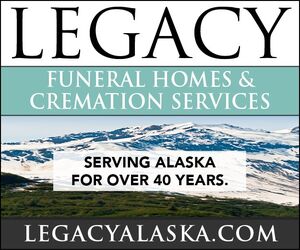Nursing home abuse is vastly under-reported
Washington Watch
October 1, 2017
More than 25 percent of possible sexual and physical abuse cases against nursing home patients were not reported to police, warns a new government audit.
The Health and Human Services inspector general’s office issued an unusual “early alert” recently, based on preliminary findings from a large sampling of cases in 33 states. The IG’s report blamed Medicare for failing to enforce federal law, which requires that nursing homes immediately notify the police in abuse cases.
Investigators issued the early warning because they found that the results were sufficiently alarming that corrective action is needed right now and can’t wait a year while the report is completed.
Looking at records from 2015 and 2016, investigators found 134 cases of abuse of nursing home residents severe enough to require emergency treatment. This sampling represents a tiny fraction of the nation’s 1.4 million nursing home residents. But it means the problem is considerably larger than people are aware of and shows that the issue has been under-reported.
These incidents of potential abuse and neglect were found in 33 states, including cases of rape and sexual abuse; more than a quarter of the cases had never been reported to law enforcement authorities. Of those 134 cases, Illinois had the largest number of incidents overall, with 17. It was followed by Michigan (13), Texas (9) and California (8).
One example, cited in the alert, involves a woman who was left deeply bruised after being sexually assaulted at her nursing home. Under federal regulations, that incident should have been reported to the police within two hours. But the nursing home involved didn’t do that.
“They cleaned off the victim,” Curtis Roy, an assistant regional inspector general at HHS said. “In doing so, they destroyed all of the evidence that law enforcement could have used as part of an investigation into this crime.”
That nursing home told the victim’s family about the assault the next day. It was the family that informed the police. But investigators found that even then, the nursing home tried to cover up the case.
“They went so far as to contact the local police department to tell them that they did not need to come out to the facility to conduct an investigation,” said Roy, an audit manager with the inspector general’s office, which investigates waste, fraud and abuse in the health care system.
To uncover the information, IG investigators cross-referenced Medicare claims from nursing homes with their claims from the emergency room – something that neither Medicare nor Medicaid ever did. The alert suggests that the Centers for Medicare and Medicaid (CMS), the agency which governs both Medicare and Medicaid, needs to become far more active in tracking these kinds of cases.
CMS could have figured this out, however. Medicare pays for hospital care and doctor’s services for the elderly, while Medicaid is responsible for paying for a larger percentage of seniors’ nursing home expenses
Since the two are parts of the same government agency, they could have done what the IG’s investigators did. Investigators looked to see if an individual on Medicare filed claims for both nursing home care and emergency room services. They also looked to see if the emergency room diagnosis indicated the patient was a victim of a crime, such as physical or sexual assault. The IG’s office is urging CMS to systematically scour computerized billing records for telltale signs of possible abuse of nursing home residents.
This problem and its under-reporting is nothing new. The law was even strengthened in 2011. It requires someone who suspects abuse of a nursing home resident causing serious bodily injury to report their suspicions to local law enforcement in two hours or less. If their suspicion of abuse does not involve serious bodily injury, they are still required to report it, but have 24 hours to do so. Failure to report either can result in fines of up to $300,000.
The problem is that CMS never got explicit authority from the Secretary of Health and Human Services to enforce these penalties, so their actions were toothless. CMS only began seeking that authority this year.
What investigators still don’t know is whether the nursing homes where the abuse took place were ever fined or punished in any way. That will be part of the final Inspector General’s report, which is not expected for about a year.
Reaction on Capitol Hill didn’t take long. Sen. Charles Grassley, R-Iowa, who serves on the Finance Committee, which regulates Medicare and Medicaid, said he won’t wait to start pushing Medicare to take immediate action. “A crime is a crime wherever it takes place,” Grassley said in a statement. “It’s unacceptable for more than one-fourth of potential crimes in nursing homes to apparently go unreported.”
Of the unreported cases, about 4 out of 5 involved alleged or suspected rape or sexual abuse.
CMS defended its current procedures, responding that it has long required immediate reporting of this type of incidents, but to state inspectors.
What about seniors neglecting themselves?
Another major but rarely talked about factor with elderly abuse involves the seniors not taking care of themselves. In order to get a handle on the extent of abuse of the age-60 and older population, and the victims and perpetrators involved, the federal government recently pulled together the first-ever national data set based on investigations undertaken through local and state Adult Protective Services systems across the country.
Its findings were surprising. Of the 267,202 cases reported by states last year to the new National Adult Maltreatment Reporting System, nearly 60 percent were categorized as cases of “self-neglect.”
This is defined as “a person’s inability, due to physical or mental impairment or diminished capacity, to perform essential self-care tasks including obtaining essential food, clothing, shelter and medical care; obtaining goods and services necessary to maintain physical health, mental health or general safety; or managing one’s own financial affairs.”
This 60-percent “self-neglect” far exceeded all other kinds of abuse reported. Behind self-neglect in complaint reports were neglect (by others such as family members or paid caregivers) at 19 percent, financial exploitation at 15.9 percent, emotional abuse at 14 percent and physical abuse at 10 percent.
There are a few problems with the numbers because not all states categorize and investigate abuse complaints the same way. Studies show that only a tiny percentage of abuse cases are ever reported in the first place. But the federal agency that collected the information, the Administration for Community Living, set up the data collection in hope that the new maltreatment reporting system will begin providing a better way to track a problem that is expected to keep growing as the number of older Americans skyrockets.
Also contributing were NPR; AP; Kaiser Health News, the Pittsburgh Post Gazette, the Hill and Money magazine.











